Great Mulch Alternatives (Also Cheap or Free) – Including Rock vs. Mulch
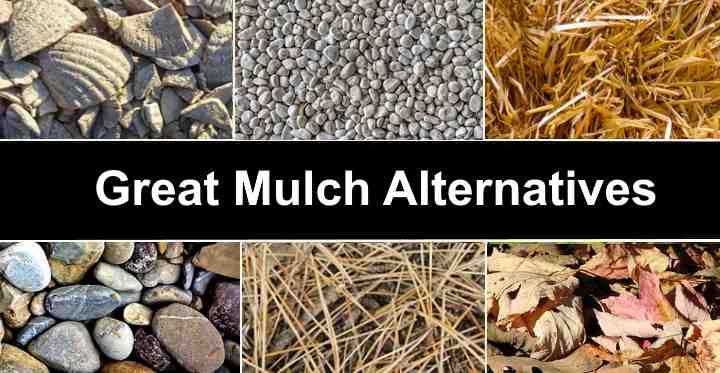
Mulch is an essential tool for any keen gardener. Laying wood chips or shredded bark mulch on soil helps to lock in moisture, keep weeds at bay, and add nutrients as it breaks down. However, several mulch alternatives are cheaper or even free. For example, mulch alternatives such as rock mulch, pebbles, crushed shells, straw mulch, or even compost can substitute traditional mulch. Depending on your yard, some of these alternative mulch ideas may also work better than wood or bark chips.
Alternative types of mulch such as small colored rocks, pebbles, marble chips, or ornamental stones can add color and provide an aesthetic quality to your garden. Rock “mulch” can be just what you need to give your garden landscape a finished, pristine look.
In this article, you will learn about the many alternatives to mulch such as rock mulch, crushed shells, pine needles, cocoa bean hulls, straw mulch and cardboard. You will also learn about free or cheap mulch alternatives such as leaves, grass, and newspaper.
Because bark mulch substitutes can have different effects on soil and plants, we’ll also discuss the pros and cons of organic mulch and using rocks in the garden.
Rocks vs. Mulch–Which Is Better in Flower Beds and Around Trees?
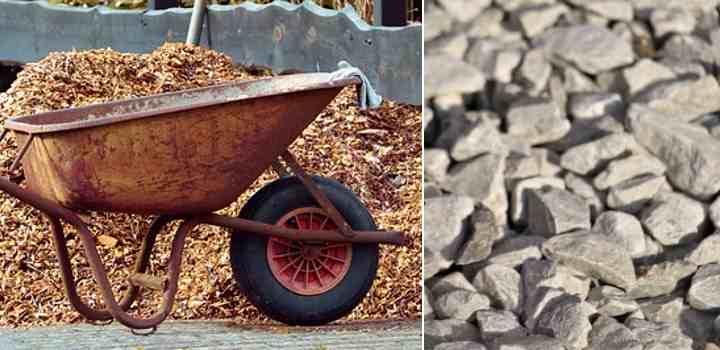
Both wood-chip mulch and rock mulch have their pros and cons
Rocks are a popular alternative to bark mulch due to their attractive appearance. If you want to improve plant growth and make your garden beautiful, should you use mulch or rocks? Here are a few factors to consider when choosing the right type of mulch.
Appearance — White stone chips or pebbles are a popular alternative to wood chip mulch. A layer of white stones over flower beds or along lawn edgings looks attractive. Traditional mulch tends to lose its color over time and has less aesthetic value than ornamental pebbles.
Soil health — when comparing mulch and rocks, it’s clear that wood shavings or bark chips are better for the soil. Organic materials decompose and add nutrients to the ground whereas stones don’t add any nutrients. Rocks could even be worse for the earth as they tend to make the soil alkaline.
Cost — Initially, using rocks or pebble mulch on flower beds is more expensive. However, because pebbles or gravel doesn’t need replacing, they can be a cheaper long-term alternative to mulch. Bark or wood chip mulch needs replacing every one to four years.
Garden maintenance — Bark mulch does a better job of preventing invasive weeds from growing than using stones or pebbles. Weeds grow through rocks unless you put a weed barrier between the soil and the stones.
Both bark mulch and rock mulch have their advantages and disadvantages depending on your garden requirements. So, let’s look in more detail at the pros and cons of organic mulch before examining the value of rock mulch.
Pros and Cons of Organic Mulch
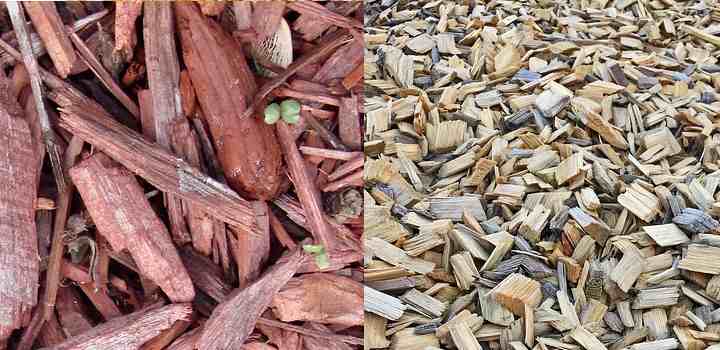
Wood-chip is a very popular mulch and it comes in various colors
Organic mulch, such as wood chippings and shredded bark are the most common kinds of mulching products. Let’s look at some of the pros and cons of organic mulch.
Organic mulch pros
Excellent for healthy soil — The most significant benefit of organic mulch is that it improves soil health. Studies show that using mulch around trees, shrubs, and flowers results in healthier plants. Mulch helps to protect soil from wind, water, and compaction. (1)
Moisture retention — Using mulch helps to retain moisture by reducing evaporation from the ground. Less evaporation means you spend less time watering your yard.
Organic-rich soil — As organic material such as straw and wood chippings break down, they add essential nutrients to the earth. These nutrients help plants thrive and be more resistant to disease.
Fewer weeds — Studies into the benefits of mulch reveal that it suppresses weeds. Because you have fewer weeds, you have to spend less time weeding. Fewer weeds also give your plants more room to grow as they’re not competing for space. (2)
Even soil temperature — Another reason for using organic mulch is that it helps maintain an even temperature in the soil. A layer of mulch helps to keep the ground cooler in summer and warmer in winter.
Organic mulch cons
High cost — Mulching your flower beds and tree areas with organic matter can be expensive. Depending on the kind of mulch, you may have to replace it every one to four years.
Flowers may bloom later — If you use mulch all year long in your yard, you may find that flowers appear later. This happens because soil takes longer to warm up in spring, and so plants tend to grow slower.
Mulch can stress plants — If you don’t apply mulch correctly, it can stress out plants. For example, too much mulch can affect plant growth and cause stress.
Pros and Cons of Rocks in the Garden
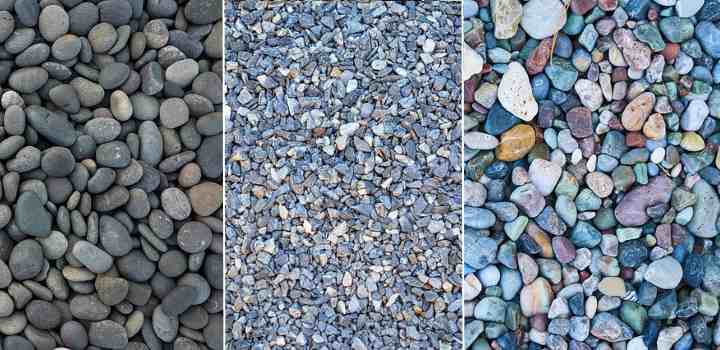
The vast majority of rocks are inorganic in origin and made of minerals
There are some advantages to using inorganic matter such as pebbles, rocks, or stones for mulching. However, rock mulch can’t be used everywhere in yards, and it has some disadvantages. Let’s look closely at the pros and cons of rock mulch.
Rock mulch pros
Less maintenance — One benefit of using rocks in the garden is that they are a low-maintenance mulch alternative.
Fire and wind-resistant — Pebbles and stones are excellent for your yard if you live in an area with wildfires. They will never burn, and they can help protect plants. Also, unlike organic mulch, pebbles or ornamental stone chips won’t blow away.
Low cost — Rock mulch is a great low-cost solution for garden mulch as you never have to replace it.
Rock (inorganic) mulch cons
No plant benefit — Rocks don’t provide any nutritional value to the soil and are only for visual effect.
Inadequate weed prevention — Weeds tend to grow through inorganic mulch. Because of the nature of rock mulch, weeding is more difficult.
Poor soil temperature control — In extreme temperatures, rocks can affect the heat of the soil. In summer, stones become hot, which increases evaporation and can stress plants.
Difficult to remove — If you decide to change your garden landscape, it can be challenging to get rid of all the stones. Removing rock mulch, especially fine pea gravel, is a difficult task.
Alter soil pH — Most plants need acidic soil to thrive. However, rocks tend to turn earth into a more alkaline state. So, some sensitive garden plants may not grow as well with rock mulching.
The Best Mulch Alternatives
Now that you know the pros and cons of using organic mulch and inorganic mulch, you can make an informed decision on how to care for your garden. Let’s look in more detail at the various alternatives to mulch. The list below has some of the best mulch substitutes you can use.
Rock Mulch

One of the most popular substitutes for organic mulch is rocks. A layer of pebbles, pea gravel, pumice rocks, or stones can be an attractive addition to a garden landscape. Rock mulch can help suppress weeds for a time—although they tend to grow through rocks eventually. Stone chips can also be a cheaper alternative to mulch and are great for a low-maintenance, minimalist garden.
Before using rock mulch as a cheaper substitute, it’s vital to plan your garden. Rocks don’t decompose and are problematic to remove if you change your yard design. You will also have to regularly fertilize plants that are protected by stone mulch as stones don’t have any nutrients.
Crushed Shells
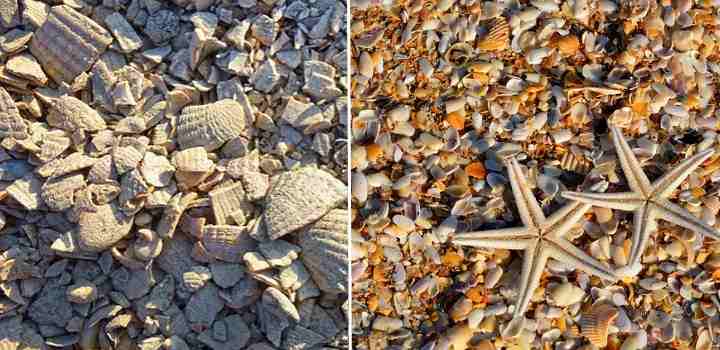
Crushed shells are another type of popular mulch that can be used in place of regular wood chips. A layer of crushed shells can help to brighten up a garden. They also look attractive in between paving, on flower beds, or as pathway or driveway edging. Crushed shells could have an advantage over rocks because they don’t hold as much heat in summer.
Crushed shell mulch tends to decay slowly and adds calcium to the soil. Calcium-rich soil is often too alkaline for many plants. So, you need to prepare the soil by putting plastic sheeting under the seashell mulch.
If you live in coastal areas, shells could even be a free mulch alternative to buying rocks or stones. All you need to do is to gather enough shells, rinse any salt deposits from them, crush the shells, and mulch your flower beds or around trees.
Pine needles
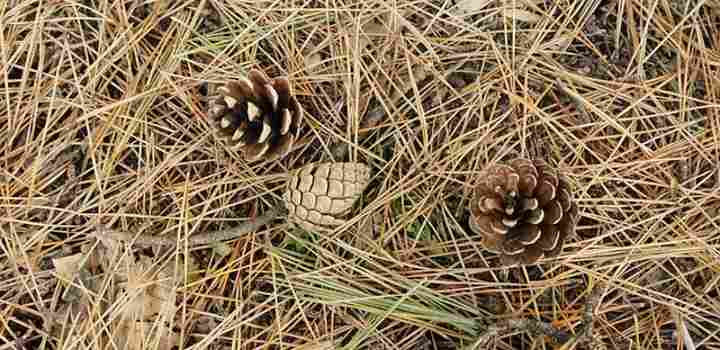
A layer of pine needles in your garden is another mulch alternative that you can use. This type of organic mulch can be fresh or dried pine needles and is also called pine straw. Pine needle mulch helps prevent moisture loss and looks attractive as plant bedding. A 1- or 2-inch (2.5 – 5 cm) layer of pine needles helps protect plants from frost and prevent soil from getting too hot in summer. Also, the acidic nature of pine needles is suitable for ground that is too alkaline.
The best plants to mulch with pine needles include roses, tomatoes, chrysanthemums, gardenias, and holly. Apart from being an excellent alternative to wood chips, fresh pine mulch also gives off a pleasant scent.
One thing to remember when using pine straw for mulch is that it’s not dog-friendly. Pine needles—while looking attractive—can damage your pet pooch’s stomach lining if they ingest them. So, if your pet dog likes playing in the garden, it’s best to use an alternative to pine mulch.
Cocoa bean hulls
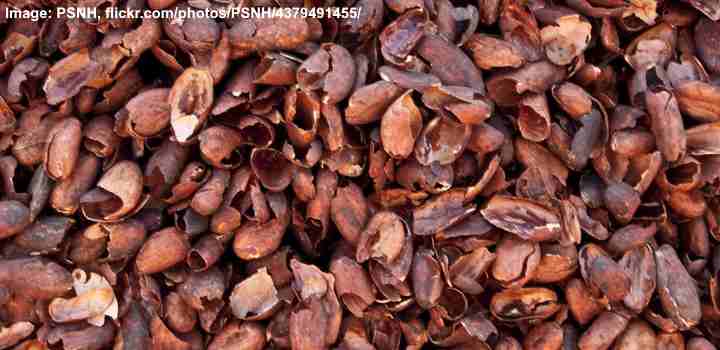
The shells of cocoa beans are an excellent substitute for bark chips as they do the same function as regular mulch. Cocoa bean mulch is excellent for retaining moisture, regulating soil temperature, and weed control. Also, cocoa bean hull mulch adds attractive color and pleasant scent to your yard.
Similar to pine needles, this organic mulch can be harmful to pets. So, use other mulch substitutes if you have dogs in your yard.
Compost

Organic compost is a great way to add nutrients to soil and provide a layer of protection at the same time. Making your own compost is easy, and it gives you an endless supply of rich organic matter for your yard. Organic compost helps hold moisture in the soil and enriches plants and trees with essential minerals and nutrients.
One of the advantages of using compost is that it’s a cheap—or even free—substitute for mulch. Plants grow faster and healthier when you use compost in flower beds, vegetable gardens, or around trees.
A drawback of organic compost is that is can smell quite bad. Also, too much of this type of natural fertilizer can make the soil too acidic and burn the plant’s roots. Also make sure that the compost is free of seeds to prevent weeds from growing.
Landscape fabric
One type of inorganic mulching alternative is landscape fabric. This type of plastic material is commonly used as a weed barrier. You can also use landscape fabric to control weeds if you use rocks or pebbles as an alternative. Although landscape fabric can help with some insect control and retain moisture, it doesn’t provide any nutritional benefits for the soil.
Landscape fabric is unsightly and may not hold up well in bad weather. Landscape fabric can be easily damaged by gardening techniques—digging, weeding, or planting flowers. Using landscape fabric as an alternative to bark chips can be cheaper. Still, it’s not as attractive, its disposal as a plastic material is an environmental problem, and it’s more labor-intensive.
Straw mulch

If you need to cover a large plot of land with mulch, then straw or hay can be a cheaper and alternate form of mulch. Straw does everything good mulch should do—controls weeds, locks in moisture, and provides soil with essential nutrients.
Straw or hay can be especially useful if you need to mulch a vegetable patch. The nutrients in the dried organic material help vegetables thrive. So, for a cheap and effective mulch alternative, straw mulch is an excellent solution.
Cardboard
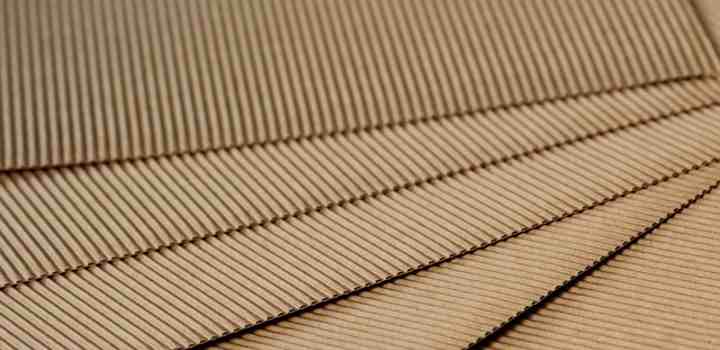
Remember that cardboard and carton are organic materials that you can use in place of mulch. Using shredded cardboard or a layer of cardboard can save you a lot of money when mulching a yard. This versatile, cheap gardening mulch can be used in a similar way to landscape fabric—only much more eco-friendly. Because cardboard decomposes, it returns nutrients to the soil.
However it is best to use cardboard as a base layer under the heavier mulch such as rocks or stones to prevent the cardboard from blowing away in the wind. Or you can mix cardboard or carton with different kinds of mulch. Even if you add it to wood chips or bark shavings, you can make a pack of traditional mulch go further.
There are a couple of things to remember if you want to use this type of low-cost mulch. Some cardboard is treated with chemicals that can harm your plant. There is also evidence suggesting that color—not black—ink can damage plants. So, if you’re in doubt about this cheap mulch, it’s best to look for an alternative.
Cheap or Free Mulch
If you have a large garden to care for, you can end up spending a lot of money on mulch. So, it’s always best to look for free or cheap alternatives. Not only do you save money, but you can reuse or recycle certain waste products. This is an environmental-friendly way to reduce the amount of stuff that goes to landfills.
What are some excellent kinds of mulch that cost nothing or next-to-nothing? Here are three free mulch alternatives:
Leaves — In the fall, you have an abundant source of free mulch if you have to rake leaves. Leaves form a natural barrier over soil that retains moisture and also helps protect plant roots from frost. Although you can just put leaves on your flower or vegetable patch, it is best to shred them first as it reduces their tendency to blow around in the wind. All you need to do is run your lawnmower over the leaves to shred them. Then, use shredded leaves as mulch in your garden.

Grass clippings – After mowing your lawn, you have a large amount of free organic mulch to use. Grass clippings are packed with nutrients, and you can put them directly on the areas you need to mulch. However, most people prepare grass cuttings before using them as mulch. Spread out grass cuttings to allow them to dry out first. This prevents quick decomposition and too much heat generation. Then apply the clipping to your flower beds, vegetable patches, or around the base of trees.

Newspapers – Using old newspapers is another source of free mulch you can use to protect your yard plants. You can lay down sheets of newspaper to act as weed control—similar to landscape fabric. Or, you can shred newspaper and mix it in with regular mulch. Mulching with newspapers is a great way to recycle paper waste and improve soil health at the same time. Only use newspapers that are printed with black, not colored ink.

Related articles:
